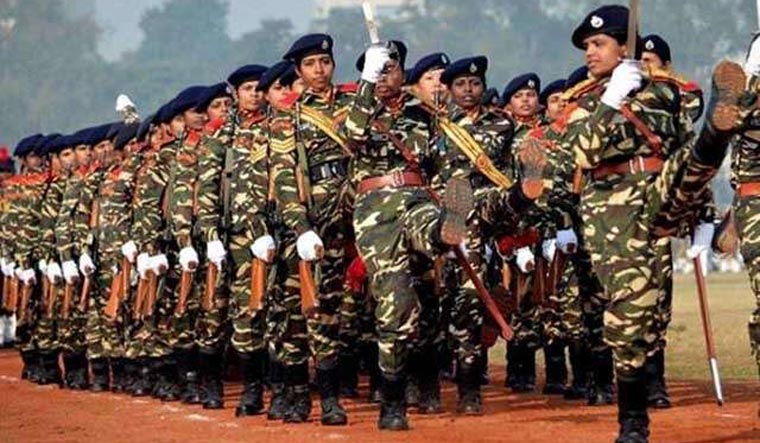Supreme Court's path-breaking judgment, asking the Centre to grant Permanent Commission (PC) to women officers in the Army, regardless of the years of service and calling the absolute exclusion of women from command appointments 'illegal', paves the way for the women officers to rise up to the level of Commanding Officer.
However, a senior defence official maintained that PC has already been granted to women officers in many areas and the Supreme Court’s verdict on the matter is for those who joined the service before the permanent commission was given.
“We respect the court ruling. In commanding positions, there are criteria and non-criteria appointments. Some criteria are in field and some are not. It is a misnomer to call them commanding positions. Four factors are considered for criteria appointments, that is leadership, performance, qualification and medical fitness," the senior defence official said, and added that everyone has to meet the criteria irrespective of gender.
The apex court, however, did not touch upon the issue of giving combat role to the women.
In 2010, the Delhi High Court had ruled that short service commissioned women officers in the Army and Air Force should be granted PC. But the Union government challenged the judgment and approached the Supreme Court. As the apex court was occupied with other important cases like the Ayodhya dispute, the women officers' case could not come up for hearing for several months.
also read
- ‘Resolve within a week, else we’ll’: SC issues ultimatum to TN Governor Ravi, DMK govt over VC appointment row
- SC stays Delhi HC order directing AAP govt to implement Ayushman Bharat, issues notice to Centre
- Sambhal masjid row: SC directs UP govt to maintain status quo, restricts probe over disputed well
- Abbas Ansari land row: SC orders status quo, directs Allahabad HC to hear plea expeditiously
- Supreme Court defers hearing on West Bengal service recruitment scam, OBC reservation
On Monday, while stating that Centre’s reply on the matter violated principles of equality, the Supreme Court said, "Centre waited for nine years before coming out with a notification in 2019 allowing permanent commission to women in eight streams. The Centre’s policy decision of 2019 recognises that physiological features have no role in allowing permanent commissions to women officers.”
With the verdict, women officers in 10 streams—Signals, Engineers, Army Aviation, Army Air Defence, Electronic and Mechanical Engineers, Army Service Corps, AOC, Intelligence, JAG and Army Education Corps—will now be eligible for PC.
It is notable that Prime Minister Narendra Modi, in his 2018 Independence Day address to the nation, made a historic announcement by opening the door of permanent commissioning for women officers in the three services. Modi had said: “Women officers who have been selected through the Short Service Commission (SSC) in our defence forces will now have the option to take up permanent commission.” The move affected the career prospect of nearly 3,700 women officers in all three services because, till now, women officers were allowed in the service for a tenure of 5 to 14 years. Permanent commission will allow them to serve till they retire—like their male colleagues.
The Army started inducting women officers under special entry scheme from 1993 and then converted it into Short Service Commission. In 2008, PC was extended to women in streams of Judge Advocate General (JAG) and Army Education Corps.
A fortnight ago, the Union government made a submission before the court regarding the appointment of women officers as commanders of units. Union government argued that it would have its own peculiar dynamics, as units are composed entirely of male soldiers drawn predominantly from a rural background. Such units, the note said, are not “mentally schooled to accept women officers in command of units”.
"Despite policy decision, the Centre submitted a note to the Supreme Court which perpetuates sex stereotypes. Arguments by the Centre founded on physical strength of men and women and grounds of motherhood, family etc violates equality,” Supreme Court said, while adding that the lines of submission are disturbing.
On the issue of giving combat role to the women, the Union government said that it is best to keep women away from direct combat since capture of a woman officer or soldier as a prisoner of war would lead to a situation of extreme mental, physical and psychological stress for the captured individual and the government.
Meanwhile, providing more opportunities to women, the Indian Army is training 100 shortlisted women to join the Corps of Military Police. Till date, women were being inducted only as officers and this is the first time they will be joining the Army as soldiers.



